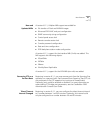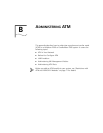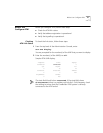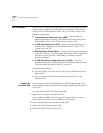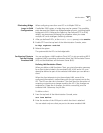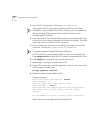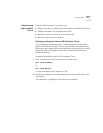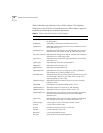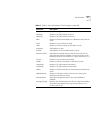
40 A
PPENDIX
B: A
DMINISTERING
ATM
LAN Emulation
LAN Emulation (LANE) provides unicast, multicast, and broadcast network
behavior over connection-oriented ATM. An emulated LAN (ELAN) can
consist of many LAN emulation clients (LECs). An ELAN consists of the
following components:
■
A Broadcast and Unknown Server (BUS)
— Responsible for
handling broadcast, multicast, and initial unicast frames sent from a
LAN Emulation Client. Each ELAN contains only one BUS.
■
A LAN Emulation Server (LES)
— Responsible for registering and
resolving MAC addresses to ATM addresses for LECs. Each ELAN
contains only one LES.
■
LAN Emulation Clients (LECs)
— The end node from the perspective
of the ATM network. It performs data forwarding, address resolution,
and other control functions. Additionally, it maintains the LAN
emulation software.
■
A LAN Emulation Configuration Server (LECS)
— The LECS
provides configuration information about the ATM and LAN networks.
It also provides the address of the LES to the LEC.
Important considerations:
■
You must define a LES and a BUS as part of an ELAN before you can
define a LEC.
■
You can configure the LES and the BUS on the same LEC or on
different LECs.
Creating an
Emulated LAN
You can create an 802.3 emulated LAN on ATM by defining the LAN’s
servers (the BUS and the LES) and then configuring each LAN Emulation
Client (LEC).
To create an emulated LAN, follow these steps:
1
Determine the location of the BUS and LES.
You can define the BUS and LES in any LEC on the network, or on an
ATM switch, such as the 3Com CoreBuilder 7000 system.
2
Define the Broadcast and Unknown Server (BUS).
3
Define the LAN Emulation Server (LES).
4
Define the LAN Emulation Clients (LEC).




